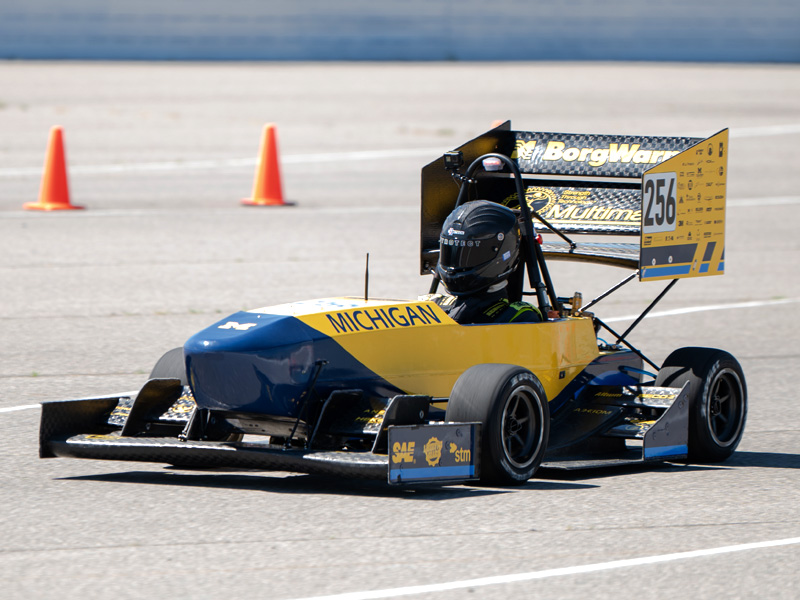As the season for Formula SAE ends, our company’s podcast “What If, So What” decided to interview the University of Michigan team captain, Luca, about his experience as an engineer for these incredible formula-style vehicles. I just finished listening to the episode, and I couldn’t believe how many parallels there were to the automotive industry. I’ve said it before: we have a lot to learn from these bright young minds who are the future of automotive, so I thought it was important to emphasize the similarities between these student teams and the automotive industry.
The first parallel I noticed was when Jim asked Luca about how he initially became involved in the robotics and racing team. At the time, Michigan had separate combustion engine and EV teams. The automotive industry began switching to an EV focus around the same time that Luca decided to switch from the ICE team to the EV team. Now, the teams have decided to combine, which parallels the automotive industry’s decision to begin focusing on electric vehicles as well.
Getting involved in our “Electrifying the Future of Automotive” program was my first exposure to the arduous challenges and brilliant accomplishments of these students. Building an EV for competition within just a few months from scratch is not an easy task. There are requirements and standards for all the colleges that must be met to qualify for competition. It takes innovative thinking and a certain discipline to make this a reality. As the government begins closing in on goals for our society’s switch to electric vehicles, we are also under a time crunch with impossible goals.
I found it both enlightening and motivational to listen to Luca as he spoke about their process and accomplishments – it really is possible with the right teamwork and the perfect combination of theory and application. I love that these students had the courage to transition from combustion to EV despite knowing the transition would be difficult.
These students do not stay within an echo chamber or bubble, either. They smartly use their colleagues’ great intellect and the larger resources available. Much like automotive companies make use of online resources and build their innovations on the foundations of innovations that have come before them, these students are pushing forward. They are not just following industry trends – they are leading them. To prove that point, Luca spoke about building a long-term network committed to mobility and automotive.
Many of these students will continue their careers at heritage OEMs and at EV-only manufacturers. They will have a hand in building better vehicles and helping the automotive and mobility transition to the future.
In terms of EVs, we see OEMs transitioning to offering more EV options to their consumers. Dealerships are getting certified to sell and service EVs. There are parts suppliers and battery makers who are looking at building longer-range lighter batteries. We are at the center of that transition, creating a frictionless shopping experience, empowering digital transformations, helping OEMs adopt EV options, and much more.
At Perficient, driving the evolution of automotive with digital solutions means advancing many new initiatives such as autonomous, connected, and electric vehicles. Tap into our automotive expertise to stay on top of the latest technology in the industry.
Listen to the “What If, So What?” episode interviewing Luca.





Leave A Comment